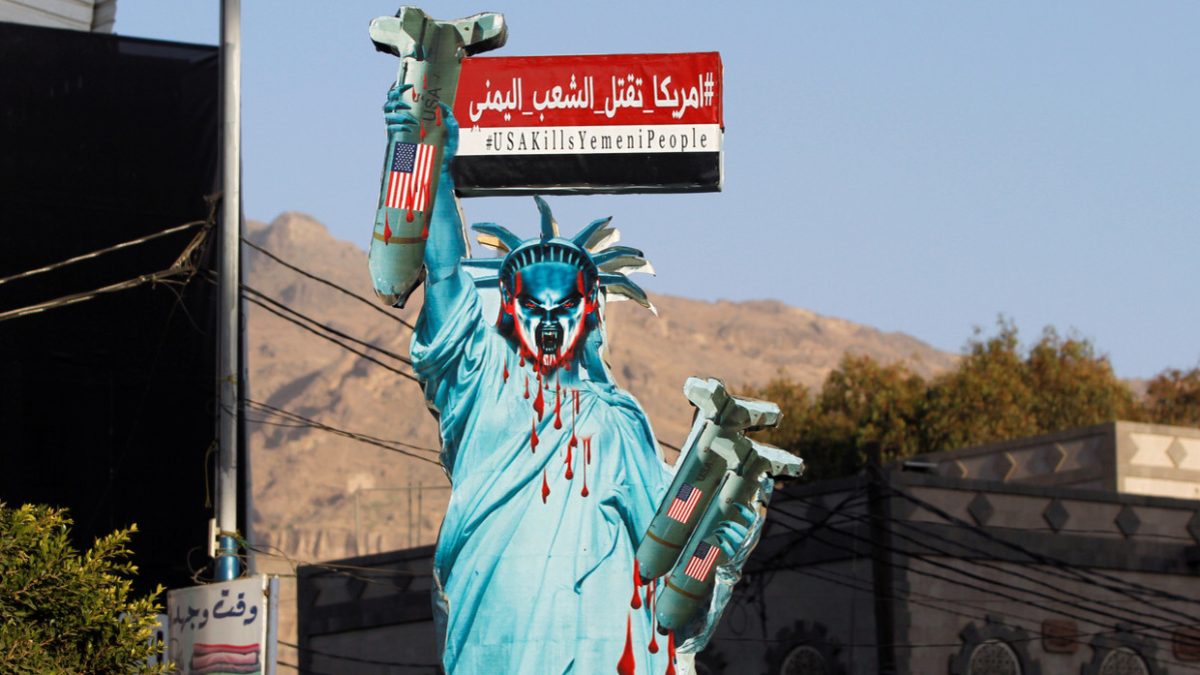The charity accused the UK government of ignoring an identifiable “pattern of harm” caused by the indiscriminate bombing – and argues it amounts to legal grounds for Britain to end elements of its lucrative arms trade with Riyadh.
Martin Butcher, a policy adviser at Oxfam, said that there had been 431 air raids in the period monitored, roughly one a day, and that the “intensity of these attacks would not have been possible without a ready supply of arms”.
The sheer number of attacks, the 87 civilians killed and 136 wounded amounted to, Butcher added, “a pattern of violence against civilians” which all parties to the conflict, including arms suppliers, had failed to prevent.
A further 13 strikes carried out by British or American-made jets had taken place on hospitals and clinics, the Oxfam research added, with farms and homes routinely hit. Civilians were forced to leave their homes or places of shelter after a total of 293 raids from the air.
The Royal Saudi air force, the principal member of the international coalition fighting against Houthi rebels in Yemen, uses Typhoon and Tornado aircraft sold and maintained by Britain and F-15s from the US.
Some of the bombs used, such as the Paveway IV, are made in the UK – and the Campaign Against Arms Trade (CAAT) estimates that the total value of UK arms sales to Saudi since it began its war against Yemen in 2015 to be £23bn.
At the end of this month, the high court will hear a fresh appeal from CAAT against the UK’s decision to resume the sale of arms to Saudi Arabia that could be used in Yemen in 2020. It argues London is acting unlawfully by ignoring potential war crimes.
Then trade secretary Liz Truss had ordered the restart – halted because CAAT won an earlier case at the court of appeal – after a review concluded there had been only “isolated incidents” of airstrikes that breached humanitarian law.
Shortly after becoming president, Joe Biden noted in February 2021 the US would halt the sale of offensive weapons to Saudi Arabia because of the situation in Yemen, but has since permitted the sale of over $4bn of defensive systems.
Relations between the two countries cooled markedly this autumn after Riyadh and other OPEC members agreed to cut oil production, so boosting the price and in effect helping Russia finance its war in Ukraine.
Unlike the US, the UK has not taken any measures to restrict sales unless forced to by the courts – although British ministers and officials say that the UK takes its export responsibilities seriously.
Ministers have to personally authorise the export of arms to Riyadh that could be used in Yemen, with the international trade secretary taking advice from the foreign secretary before making a final decision.
Officials maintain a “tracker” – a dossier of more than 500 incidents documenting every airstrike where there is deemed to be a risk of civilian casualties or damage to civilian infrastructure – to help ministers decide whether humanitarian law is being breached on a sustained basis.
Saudi Arabia launched the devastating war on Yemen in March 2015 in collaboration with its Arab allies and with arms and logistics support from the US and other Western states.
The objective was to reinstall the Riyadh-friendly regime of Abd Rabbuh Mansour Hadi and crush Houthi rebels, which has been running state affairs in the absence of a functional government in Yemen.
While the Saudi-led coalition has failed to meet any of its objectives, the war has killed hundreds of thousands of Yemenis and spawned the world’s worst humanitarian crisis.
